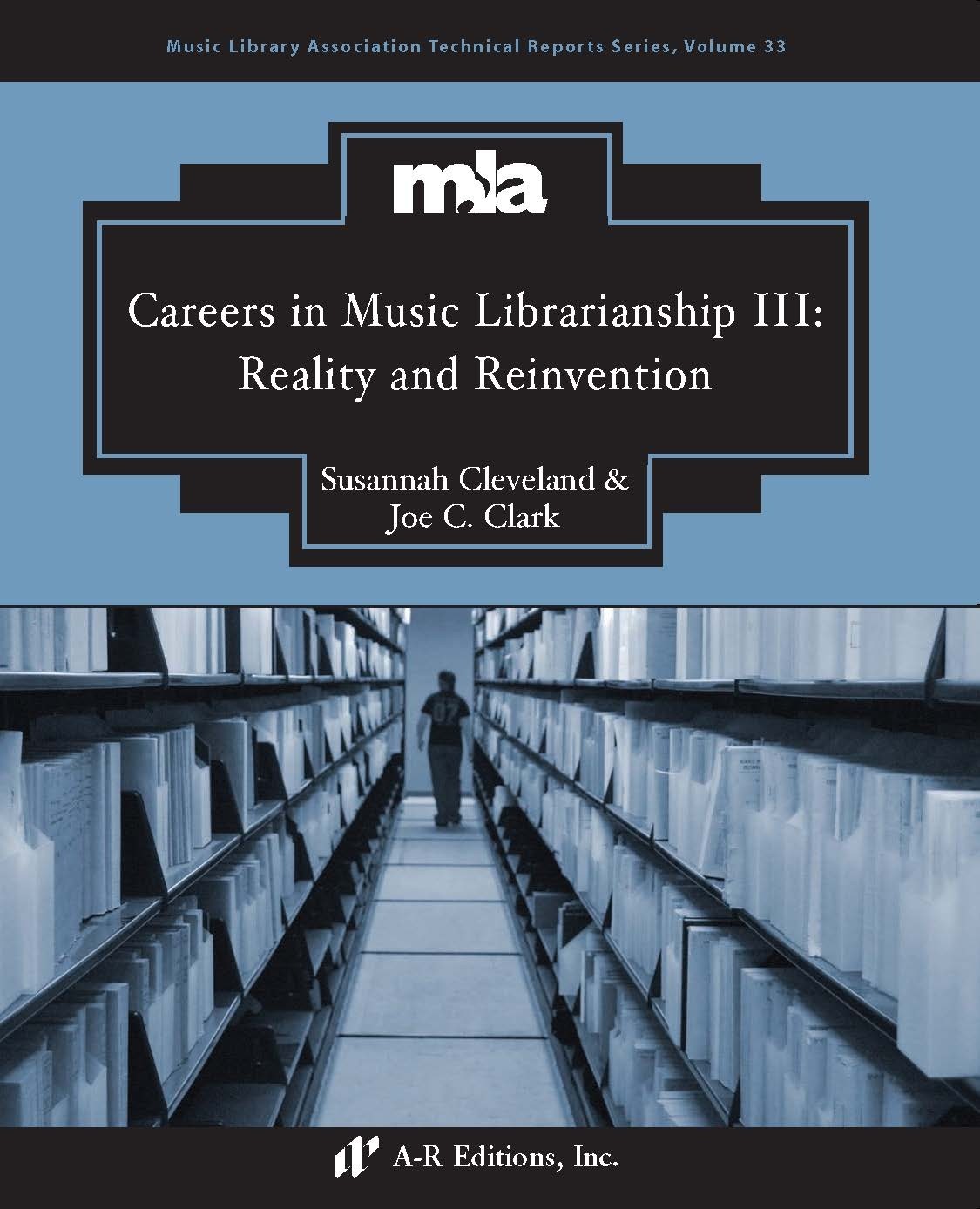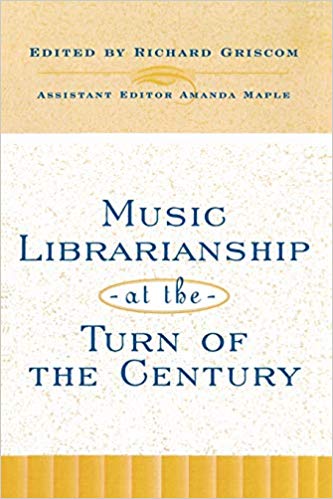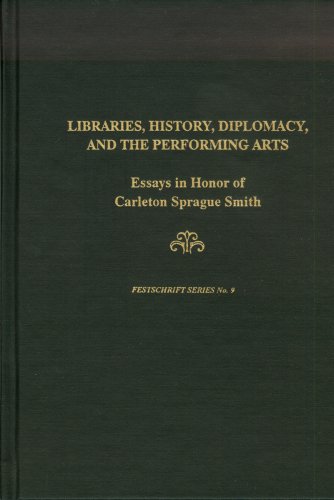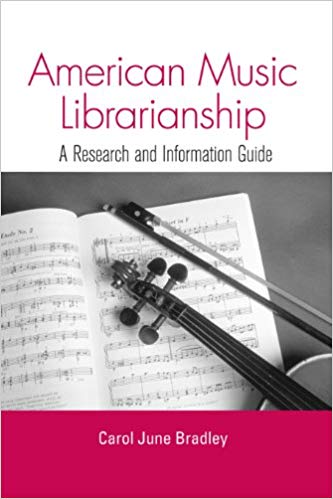What is a Music Librarian?
A music librarian is a librarian qualified to specialize in music. A broad musical background is essential, for music of any style, medium, or era can find a place in a library. Aptitude and training in both music and librarianship are necessary.
Where are Music Librarians employed?
Music librarians work in large research libraries such as the Library of Congress or the New York Public Library; in the music section or branch library in universities, colleges, and conservatories; in public libraries; in radio and television station libraries; with music publishers and dealers; with musical societies and foundations; and with bands and orchestras.
What do Music Librarians do?
The traditional responsibilities of librarians are at the heart of most music librarians’ activities: organizing, cataloging, and maintaining collections; providing instruction in use of the library; answering reference inquiries; selecting music, books, journals, recordings, microforms, and sometimes manuscripts and other rare materials for acquisition. Music librarians recommend means of preservation and housing of materials in their custody and use electronic bibliographic and reference resources to their full potential.
Beyond these typical responsibilities, the activities of music librarians will reflect the nature of the institution where they are employed and their personal interests. For example, they may plan exhibits and concerts, and collaborate with other institutions in organizing lectures, classes, or other public programs. In a conservatory or university school of music, librarians often order or rent the music needed by student performing ensembles-orchestra, band, opera workshop, and chamber groups. Music librarians employed by symphony orchestras and broadcasting stations organize and maintain libraries of performance materials or recordings for use only by those particular organizations. Librarians who work for music publishers might have editorial duties or manage the inventory of rental music. Those employed by music dealers acquire materials from numerous publishers world-wide for retail sale to over-the-counter and mail-order customers.
Librarians can take an active role in music scholarship by compiling bibliographies, pursuing research, or writing reviews of new publications. They often teach music bibliography and other classroom subjects within their areas of specialization. As members of professional organizations, they may serve on local, national, or international committees devoted to issues such as electronic information storage and retrieval, cataloging standards, education for librarianship, preservation, and library management. Within the library it might be their responsibility to organize training programs for staff, researchers, or interns.
How do you become a Music Librarian?
Training for music librarianship should include as broad an education as possible in both music and the liberal arts. Training in music must be the equivalent of at least substantial undergraduate work. Undergraduates need a wide background in the humanities, for music librarians need to be familiar with the relationship of music to other disciplines. Music and the literature about it are published in many countries and languages; basic cataloging and bibliographic research require a working knowledge of German and at least one Romance language. A master’s degree in library or information science is required by most employers. Because music librarians need a thorough knowledge of music history and repertory, a second master’s degree in music is required or highly desired for some positions. Libraries specializing in folk music or musics of non-Western cultures require training in ethnomusicology, archives management, and other languages. In libraries where music is combined with other subjects, such as dance or fine arts, background in those subjects may also be expected.
To understand more about a standard of core competencies acquired for music librarians, you may wish to view: Core Competencies and Music Librarians, a report prepared for the Library School Liaison Committee, April, 2002.
Some library schools offer special courses or internships in music librarianship. Information about these programs appears in the Directory of Library School Offerings in Music Librarianship.
What are the career prospects?
Commitment to music draws individuals interested in librarianship to this field of specialization. To enjoy it and to become an accomplished practitioner, intellectual curiosity, concern for detail, and an ability to organize ideas as well as things are essential. Music librarianship is a financially stable career, and one that many musicians find compatible with a part-time second career as a performer. Most music librarians work with the public, either in full-time public service positions or as a part-time responsibility shared with their other work. Technical services librarians, such as those in cataloging or acquisitions, may work entirely behind the scenes.
Music librarianship offers a broad range of administrative and supervisory positions. Some of the smaller music collections are administered and operated by a single professional, with support staff. In large academic and public libraries, there are management positions as department heads and assistant heads. The head of a music library, whatever its size, may have budget, personnel, facilities, and collection management responsibilities.
The best introduction to music librarianship as a career is employment in a music library in a non-professional capacity; full-time, part-time and hourly positions are available in public and academic libraries, and with music publishers and performance ensembles. To learn about the profession’s current activities and to make useful contacts, join the Music Library Association as a student member. MLA was founded in 1931 to promote the establishment, growth, and use of music libraries. Members receive the MLA Newsletter and its quarterly journal Notes, which contains articles, bibliographies, and reviews of music, books, and software. MLA holds an annual meeting in the late winter or early spring. There are ten regional chapters that also meet regularly.
Where can I get more information?
See our brochure, “Careers in Music Librarianship”
Explore the MLA site! The Career Resources page contains lists and bibliographies covering a range of topics useful to music librarians at every stage of their career. You can also view current job openings, and view research reports, publications in print, and committee and chapter working papers. Our website also has links to additional pages concerning copyright and the annual meeting, to committees and chapters pages, and other Internet resources of interest to music librarians.
See also

Careers in Music Librarianship III: Reality and Reinvention
Edited by Susannah Cleveland & Joe C. Clark Middleton, Wis.: A-R Editions, 2014 (Music Library Association Technical Reports, 33)

Music Librarianship at the Turn of the Century
Edited by Richard Griscom and Amanda Maple Canton, Mass.: MLA, 2000. (Music Library Association Technical Reports, 27)

Libraries, History, Diplomacy, and the Performing Arts: Essays in Honor of Carleton Sprague Smith
Ed. by Israel J. Katz. Stuyvesant, N.Y.: Pendragon Press, 1991.

American Music Librarianship
by Carol June Bradley New York: Greenwood Press, 1990.
